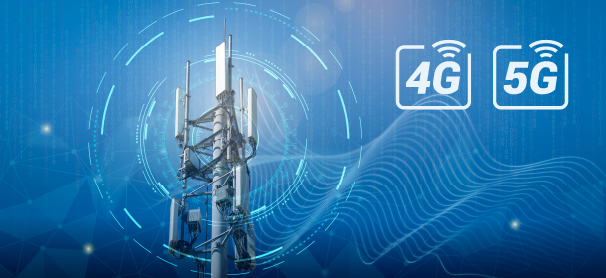This website uses cookies so that we can provide you with the best user experience possible. Cookie information is stored in your browser and performs functions such as recognising you when you return to our website and helping our team to understand which sections of the website you find most interesting and useful.
Code Division Multiple Access (CDMA) certification is a modern mobile architecture utilized for both speech and data transmission on smartphones. CDMA serves as the basis for numerous access techniques like CDMAOne, CDMA2000, and the most recent WCDMA. CDMA mobile networks are widely regarded as better than TDMA and FDMA, so CDMA is crucial in developing efficient, reliable, and safe radio access technologies.
This technique utilizes a concept known as “spread-spectrum.” This permits electromagnetic waves to go further, resulting in a robust transmission with greater bandwidth. It’s what enables multiple users on a single system to make and receive calls and access the internet as a medium. CDMA technology uses coding to split voice and data packages and transmits them over a larger frequency band to enable more data.
Features of CDMA
In order to manage their transmissions, every user in a CDMA system uses a distinct coding. In the functioning of CDMA networks, choosing the coding to employ to modify the data is critical. The highest CDMA efficiency occurs when the transmission of the intended user is well separated from the transmissions of other persons in the area.
These transmissions are split by verifying the incoming signal to the targeted user’s independently created signal. The correlation value would be large if the transmitted signals resemble the targeted user’s signal, and the algorithm can retrieve that message. The correlation is as near to zero as feasible when nothing is similar, eliminating the signal. This is known as cross-correlation.
What are the benefits of taking a CDMA Certificate?
- Because of dispersion, the data to be sent in CDMA is distributed along with broad bandwidth. As a result, CDMA is more resistant to fading and noise in loud areas.
- Interfering with the CDMA frequency is impossible since the data transmitted will be less than the noise level. Also, decoding the CDMA coding utilized over the communication lines is extremely challenging for cyber criminals. As a result, CDMA is a safer system.
- CDMA enables the simultaneous usage of the whole bandwidth; therefore, there is no restriction on the range of people per cell. This depends on the CDMA-compatible base network’s compatibility for various codes. It is also simpler to connect users.
- The smooth handoff functionality establishes the original link with a new cell throughout the changing among cells, reducing the likelihood of connection interruption or loss.
- CDMA networks are compatible with other mobile networks like GSM and LTE. As a result, global roaming is feasible with no problems.
CDMA Certification Services
Our CDMA certification services cover a range of key aspects, including:
- Compatibility Testing: Ensuring devices can seamlessly connect and operate on CDMA networks without compatibility issues.
- Performance Testing: Verifying that devices deliver the expected level of performance in terms of data transfer speeds, call quality, and reliability.
- Regulatory Compliance: Ensuring that devices comply with regulatory requirements set by CDMA carriers and regulatory authorities.
Why Choose 360Compliance for CDMA Certification?
By obtaining CDMA certification, manufacturers guarantee that their devices meet the stringent standards set by CDMA network carriers, ensuring seamless connectivity and reliable communication for users.
- Turnkey Solutions: We handle the entire certification process, from initial consultation to final approval, saving you time and resources.
- Global Expertise: Our accredited laboratories and experienced engineers navigate the complexities of CDMA regulations worldwide.
- One-Stop Shop: We offer a wide range of testing and certification services beyond CDMA, streamlining your global market access strategy.
- Fixed Costs and Fast Turnaround: Enjoy transparent pricing and efficient processes for a predictable and timely certification journey.
- Unparalleled Support: Our dedicated team provides pre-testing, debugging, and technical guidance throughout the process.
360Compliance understands the crucial role CDMA compatibility plays in accessing global markets for wireless devices. Our comprehensive CDMA certification services ensure your products meet the necessary standards, minimizing risks and maximizing market reach. Contact us today to discuss your specific needs and start your journey to seamless CDMA testing!
Other Certifications

Cellular Certification
Key Components of Cellular Testing Interoperability: Cellular testing ensures that mobile devices can seamlessly connect and communicate with various networks and infrastructure. This is vital for users who may switch between different carriers or travel internationally, as their devices need to function reliably across diverse network environments. Compliance with Standards: Cellular technologies adhere to established standards set by organizations such as the International Telecommunication Union (ITU), 3rd Generation Partnership Project (3GPP), and Global Certification Forum (GCF). Certification ensures that devices comply with these standards, promoting consistency and compatibility across the industry. Network Compatibility: Certification ensures that mobile devices are compatible with specific generations of cellular networks, such as 2G (GSM), 3G (UMTS), 4G (LTE), and the latest 5G technologies. This compatibility is essential for optimal performance and takes into account factors like data speed, latency, and network efficiency. A Step-by-Step Guide to Cellular Certification The cellular certification process is a comprehensive evaluation that mobile devices undergo to ensure compliance with industry standards and regulations. The process includes: Pre-Certification Assessment: Manufacturers begin the process by conducting an internal evaluation of the device's hardware, software, and overall design to identify potential issues. Submission of Documentation: Manufacturers must compile and submit detailed documentation outlining the device's specifications, features, and technical aspects. This documentation typically includes information about the device's hardware components, software architecture, security features, and network compatibility. Laboratory Testing: Rigorous testing for network compatibility, data transmission, voice quality, multimedia performance, and security features. Network Simulation: Devices undergo testing in simulated network environments to evaluate their performance under various network conditions, such as low signal strength or high network traffic. Interoperability Testing: Evaluation of device compatibility with various networks, applications, and services. Security and Compliance Checks: The certification process includes a thorough examination of the device's security features to ensure compliance with industry standards and regulations. Regulatory compliance checks, including safety standards and electromagnetic compatibility, are conducted to meet legal and environmental requirements. Certification Issuance: Awarding of certification upon successful completion of all tests. Post-Certification Support: Manufacturers may need to provide ongoing support, addressing any issues that may arise after certification. This stage involves collaborating with regulatory bodies and network operators to address updates, patches, or new standards that may impact the certified device. Benefits of Cellular Certification Cellular mobile device certification offers a multitude of benefits for both manufacturers and users: Guaranteed Compatibility: Devices that are certified work seamlessly with the network, ensuring reliable and consistent connectivity. Improved User Experience: Users benefit from better call quality, faster data speeds, and a more stable overall mobile experience. Reduced Costs: Manufacturers can save time and money by ensuring their devices are certified before launch, avoiding costly rework or delays. Enhanced Safety: Cellular phone certification ensures devices comply with safety regulations, protecting users and the network infrastructure. Why Choose 360Compliance for Your Cellular Testing Needs? When it comes to cellular testing, 360Compliance stands out as your trusted partner. Our team brings extensive experience in certifying electronic devices for markets spanning over 195 countries. With all the necessary permits and licenses for end-to-end certification, we offer fixed costs from start to certificate, ensuring transparency in pricing. Connect with 360Compliance experts for an initial, free-of-charge consultation, guiding you towards the right strategic approach for a faster time-to-market and a cost-effective solution. Additional Resources: IoT Cellular Certification: Read more Cellular Carrier Certification: Read more CTIA Certification: Read more
Learn more
T-Mobile Certification
What Is T-Mobile Certification? T-Mobile device certification is a procedure that verifies cellular phones are compliant with the T-Mobile network and operating at maximum intensity. For gadgets designed for use on the T-Mobile system, OEMs/ODMs must obtain T-Mobile product certification. T-Mobile must certify any device using their Narrowband infrastructure. As the OEM/Product Manufacturer, you will need to provide T-Mobile with data on device capabilities. Why is T-Mobile Testing Important? T-Mobile device certification is important for several reasons: Ensures compatibility: It guarantees that your device will work seamlessly on the T-Mobile network, preventing issues like dropped calls, slow data speeds, or inability to connect to certain features. Optimizes performance: Certified devices undergo testing and tuning to function optimally on T-Mobile's network, improving battery life, call quality, and data speeds. Protects the network: Certification helps to ensure that devices do not harm the T-Mobile network or interfere with other users' experience. What Devices Require T-Mobile Certification? Any cellular device intended for use on the T-Mobile network, including: IoT Devices: From wearables and smart home gadgets to industrial sensors and connected vehicles, all require T-Mobile Certification for reliable network access. Mobile Smartphones and Tablets: Ensuring seamless voice, data, and messaging experiences for consumers on T-Mobile's network. Mobile Broadband Devices: MiFi hotspots and other mobile internet devices must be certified for optimal performance on the go. The T-Mobile Certification Process The T-Mobile certification process involves several key steps: Pre-Certification Consultation: Discuss your device specifications and intended use with T-Mobile's technical experts to determine the appropriate certification requirements. Testing and Validation: Submit your device for a series of comprehensive tests covering functionality, security, radio performance, and network impact. Certification Review: After the testing is complete, T-Mobile reviews the results and grants certification only if all requirements are satisfied. What Do You Need to Know About T-Mobile Certificate? The certification standards of the carrier are highly specific and detailed. They usually feature characteristics that are distinct to each network, even though they also conform to standard requirements. Each carrier has unique specifications that must be met before using a device on their system. Some cellular carriers prioritize obtaining PTCRB certification over TIS; others involve extra validation for LTE networks, and several depend on FCC conformance for RSE verification while others do not. Design engineers need to have the most up-to-date data on every carrier's criteria. T-Mobile is mostly concerned with PTCRB certificate. TIS/TRP is not presently applied. PTCRB testing is performed on all enabled phone channels, regardless of carrier usage. T-Mobile utilizes substantially unique channels than most North American GSM providers, which can be misleading when testing on the 850MHz band, which T-Mobile is not using. Why Choose 360Compliance For T-Mobile Testing? 360Compliance offers an initial, free-of-charge consultation to guide you in defining the right strategic approach. Partner with us for a faster Time-To-Market (TTM) and the most cost-effective solutions, ensuring your device is T-Mobile Device Certified with precision. Contact 360Compliance for a consultation and set your device on the path to seamless integration with the T-Mobile network.
Learn more
LTE Certification
LTE certification is crucial for any wireless device to access global markets. But navigating the complex landscape of testing, regulations, and approvals can be daunting. That's where 360Compliance steps in, offering a streamlined, one-stop solution for all your LTE device testing needs. Smartphones are used by a great proportion of mobile users worldwide. Considering the growing demand for better performance and application-specific requirements during the last decade, the evolution occurred in this market. This was made possible by a vision of important parties collaborating, as well as a lot of research and hard work over the years. The collaboration resulted in the development of LTE technology to fulfill customers' internet needs. Although some LTE use cases have been implemented, there are still issues that need to be resolved in terms of performance, delay, and spectrum efficiency for operational maintenance. 4G technology, based entirely on IP, allows for seamless connectivity and worldwide roaming. Compatibility using current wireless protocols, easy handovers, and great service quality are all features of this technology. What is LTE Certification? LTE (Long-Term Evolution) certification ensures that wireless devices comply with industry standards for performance and compatibility. Obtaining LTE certification is essential for manufacturers looking to enter global markets and ensure their products meet regulatory requirements. What Is The Purpose Of LTE Certification? 4G Testing verifies that your device or equipment complies with the stringent technical specifications and regulatory requirements of Long-Term Evolution (LTE) networks. This comprehensive evaluation ensures: Compatibility: Your device can seamlessly connect and operate across different LTE networks worldwide. Performance: You deliver the expected high-speed data transfer, low latency, and reliable voice communication. Safety: Your device adheres to established safety standards, protecting users and infrastructure. Why LTE Device Certification Matters: Market Access: Certification is your gateway to selling in numerous countries, ensuring compliance with regional regulations. Consumer Confidence: Certification signifies quality, safety, and performance, boosting consumer trust and brand reputation. Interoperability: Certification guarantees seamless device interaction with various networks, enhancing user experience. Why Choose 360Compliance For LTE Testing? 360Compliance offers comprehensive solutions, from pre-compliance guidance to final certification, ensuring a smooth and efficient process. Leverage our: Extensive experience: Our seasoned team guides you through every step, addressing challenges and optimizing your certification timeframe. Global reach: Access our network of accredited labs strategically positioned worldwide, minimizing travel and logistical hurdles. Cost-effective solutions: Benefit from transparent pricing and fixed costs, allowing you to budget effectively. Technical expertise: Our qualified engineers conduct rigorous testing with cutting-edge equipment, ensuring compliance and optimal performance. Contact 360ComplianceTesting Labs today and discuss your specific LTE certification and testing requirements. Our team will guide you through the process, ensuring you achieve fast, efficient, and cost-effective compliance for your LTE devices.
Learn more


